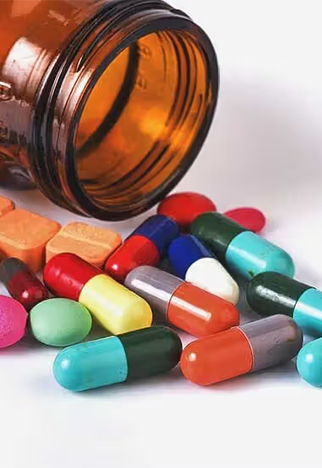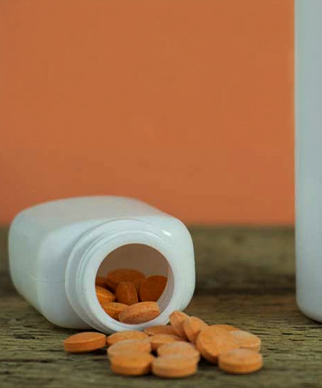- Mumbai, New Delhi, Bangalore
- (+91) 81518 30000
- WhatsApp Now
- contact@vedawellnessworld.com
Prescription drug addiction is a growing concern globally, and India is no exception. With increasing instances of misuse and dependency, the need for effective treatment and rehabilitation is more critical than ever. Veda Rehabilitation and Wellness offers a comprehensive approach to tackling this issue, focusing on holistic healing and voluntary participation.
According to the National Crime Records Bureau (NCRB) and the Ministry of Social Justice & Empowerment, drug addiction is a significant issue in the country. Reports indicate a substantial number of individuals struggle with substance abuse, highlighting the urgent need for effective rehabilitation programs like those offered by Veda.
If you’re attempting to end your relationship with prescription drugs, the withdrawal symptoms can be severe, especially for those with extreme dependence or pre-existing health issues. Here’s a detailed look at various detox processes for some of the most commonly misused prescription drugs.
Understanding Opioid Detoxification
Opioid detox is the process of eliminating opioids from a patient’s body. Various detox plans are available, tailored to the individual’s needs and the severity of their addiction.
Methods of Detox
Managing Withdrawal
Withdrawal from opioids can be challenging and may involve symptoms like nausea, diarrhoea, and pain. Medical treatments such as anti-nausea, anti-diarrheal, and painkiller medications can help alleviate these symptoms. Additionally, IV fluids and other medical interventions may be necessary to address issues like dehydration. Mental health support is also crucial as patients often experience anxiety and depression during detox.


What is Suboxone?
Suboxone is a medication used in the treatment of opioid addiction, combining buprenorphine and naloxone. It helps lessen the withdrawal symptoms of opioids like heroin, hydrocodone, and oxycodone.
Detox Process
Detoxing from Suboxone should always be supervised by a medical professional to determine the safest tapering rate, reducing discomfort and the risk of relapse. Cravings during withdrawal can be intense, making professional guidance essential.
Post-Detox Treatment
Long-term treatment is often necessary to maintain sobriety. This can include individual therapy, group therapy, 12-step programs, and other support systems to increase the chances of successful recovery.
Understanding Benzodiazepines
Benzodiazepines, or benzos, are tranquilizers prescribed for anxiety and insomnia but are also prone to misuse and addiction when taken improperly.
Medically-Assisted Detox
Medically-assisted detox involves slowly tapering off benzos over weeks or months, depending on the specific drug and the patient’s needs. For example, a long-acting benzodiazepine like Klonopin may be prescribed to ease severe withdrawal symptoms for those coming off short-acting benzos like Ativan.


What is Methadone?
Methadone is a synthetic opioid used to treat opioid addiction by blocking pain and reducing euphoria. Despite its effectiveness, methadone itself can be addictive.
Detox Options
Medical Detox
Abruptly stopping methadone is discouraged due to severe withdrawal symptoms. Medical detox involves medications like buprenorphine, along with counseling and physician guidance, to minimize withdrawal symptoms. Following detox, a gradual tapering off the detox medications is planned.
Detoxing from prescription drugs is a complex process that requires professional intervention to manage withdrawal symptoms effectively and reduce the risk of relapse. Whether it’s opioids, Suboxone, benzodiazepines, or methadone, each detox path has unique considerations and requires tailored treatment plans. If you or a loved one is ready to take the first step towards recovery, contact Veda Rehab and Wellness Center today for comprehensive and compassionate care.
Veda Rehabilitation and Wellness stands out with its holistic, voluntary-based approach to treating prescription drug addiction and other dependencies. By offering a comprehensive treatment plan that includes medical detox, psychiatric care, psychotherapy, and wellness practices, Veda provides a nurturing environment for recovery. The focus on voluntary admission ensures that patients are genuinely invested in their healing journey, making it a unique and effective option for those struggling with addiction in India.
Veda Rehabilitation and Wellness Centers offer a unique and comprehensive approach to tackling prescription drug addiction. Their philosophy centres on holistic healing and voluntary participation, creating a safe and supportive environment for individuals seeking recovery.